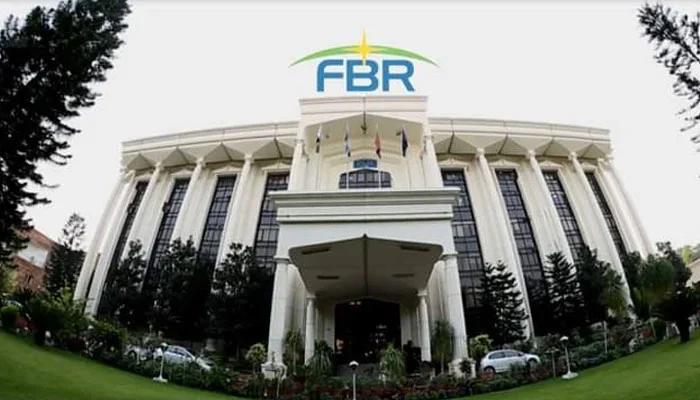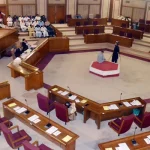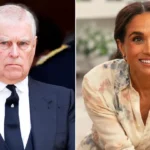ISLAMABAD: According to The News on Wednesday, the senior management of the Federal Board of Revenue (FBR) would submit a summary of a reform plan to the federal cabinet in order to carry out the Special Investment Facilitation Council’s (SIFC) ruling.
Nonetheless, the FBR has made the decision to formally oppose private individuals leading the boards of Customs and Inland Revenue.
“The FBR will fight tooth and nail against anything that is not in the greater interest of revenue generation efforts,” insiders told The News on Tuesday.
It is unknown how private members would make sure there are no conflicts of interest once they hold the role of chairman of the board.
The FBR’s restructuring plan has been authorized by the SIFC, and the chairman and secretary of the Revenue Division have been tasked with preparing and sending a summary to the cabinet within 15 days.
According to sources, the SIFC had the final say over all directions, and its instructions would be followed to the letter.
The top officials of the FBR would, however, be against designating private individuals to lead the boards for inland revenue and customs as well as against adding various federal secretaries to the boards.
Within the FBR’s ranks, there is a perception that the powerful DMG officers were able to secure posts above those of the Federal Board of Customs and FBR’s director generals of inland revenue (DGs).
Additionally, if all these high-ranking secretaries were named to the boards, they might become blind to any misconduct by lower-ranking IRS and Customs employees, undermining the accountability system.
Another concern has been whether or not there will be an increase in tax income generating. During the appointment of private members, an official brought up the incident from the previous 15 years in which the audit was contracted out to private companies. This led to a scandal, which ultimately forced the government to rescind its plan to contract out the audit.
A new governance structure for the FBR, including the establishment of separate Federal Boards of Customs and Federal Boards of Inland Revenue, was proposed by caretaker Minister of Finance Dr. Shamshad Akhtar.
The independent, highly qualified experts who chair the respective Oversight Boards for the Customs and Inland Revenue Administrations will have both public and private sector participation on the board, as well as individuals recruited based on appropriate standards, integrity, and knowledge.
Strengthening governance and accountability through oversight boards will be the main goal of the reforms. A new policy mandate will be reported to the Federal Policy Board upon its reconstruction under the minister of finance and the secretary of the Revenue Division.
Under the Federal Policy Board, the Tax Policy Office will be established with HR experts with the necessary skills, including tax and industry specialists. Its main responsibility will be to coordinate asset valuation procedures and the legal and regulatory framework of taxation regimes, with the goal of maximizing revenue.
The suggested changes will be put into effect within the parameters of the FBR’s current resource allocation.
In order to maintain independence, the governor SBP advised that the Tax Policy Unit (TPU) would oversee the audit functions of FBIR and FBC.







